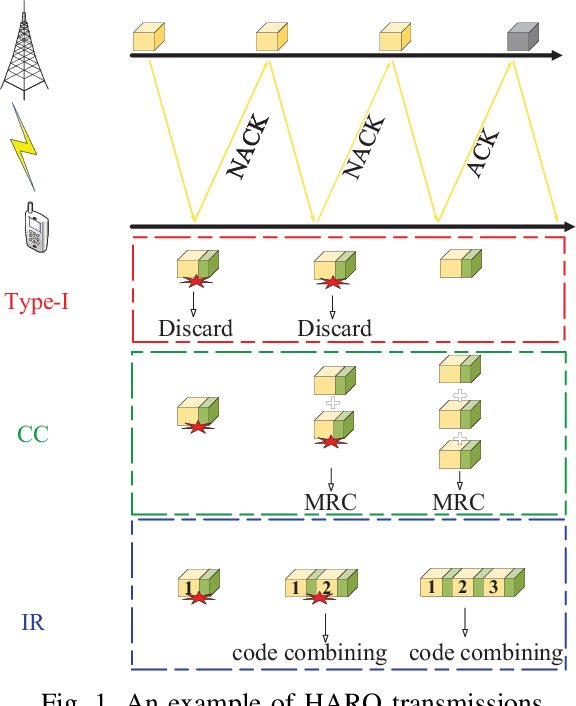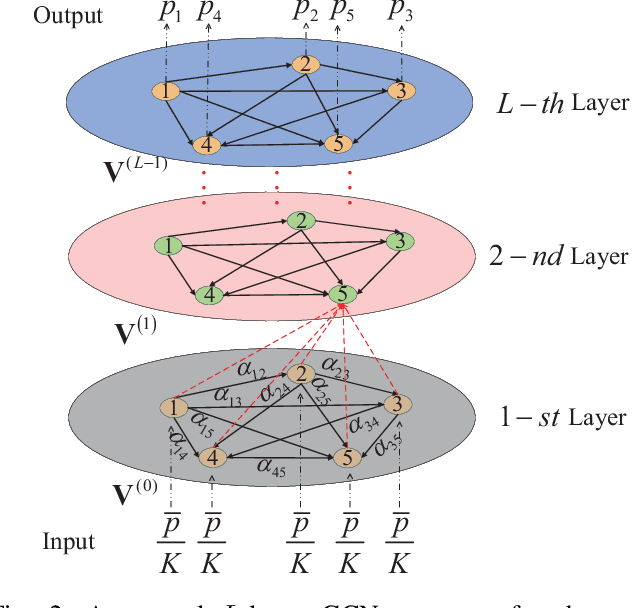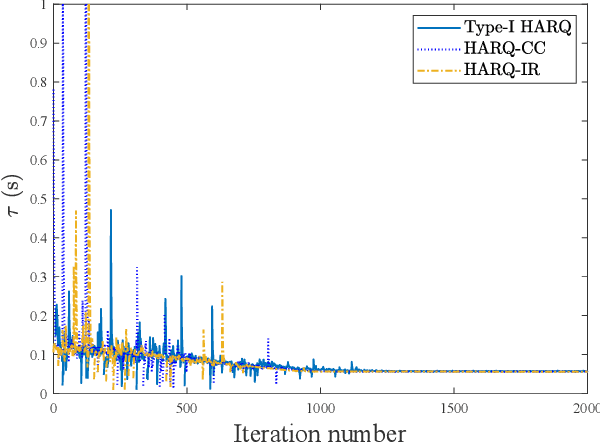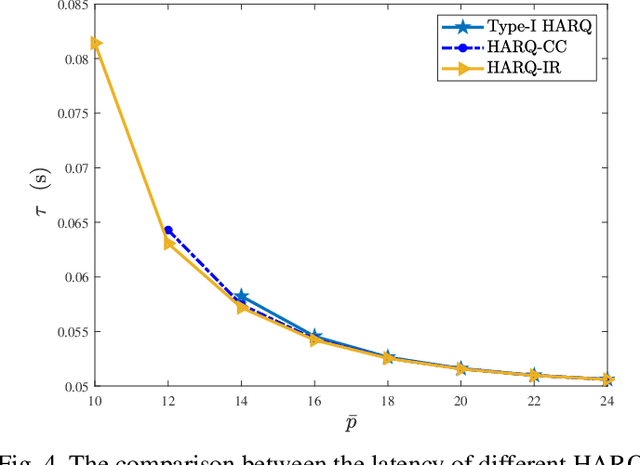Haichuan Ding
Graph Convolutional Network Enabled Power-Constrained HARQ Strategy for URLLC
Aug 04, 2023



Abstract:In this paper, a power-constrained hybrid automatic repeat request (HARQ) transmission strategy is developed to support ultra-reliable low-latency communications (URLLC). In particular, we aim to minimize the delivery latency of HARQ schemes over time-correlated fading channels, meanwhile ensuring the high reliability and limited power consumption. To ease the optimization, the simple asymptotic outage expressions of HARQ schemes are adopted. Furthermore, by noticing the non-convexity of the latency minimization problem and the intricate connection between different HARQ rounds, the graph convolutional network (GCN) is invoked for the optimal power solution owing to its powerful ability of handling the graph data. The primal-dual learning method is then leveraged to train the GCN weights. Consequently, the numerical results are presented for verification together with the comparisons among three HARQ schemes in terms of the latency and the reliability, where the three HARQ schemes include Type-I HARQ, HARQ with chase combining (HARQ-CC), and HARQ with incremental redundancy (HARQ-IR). To recapitulate, it is revealed that HARQ-IR offers the lowest latency while guaranteeing the demanded reliability target under a stringent power constraint, albeit at the price of high coding complexity.
Performance Analysis and Optimal Design of HARQ-IR-Aided Terahertz Communications
Apr 22, 2023



Abstract:Terahertz (THz) communications are envisioned to be a promising technology for 6G thanks to its broad bandwidth. However, the large path loss, antenna misalignment, and atmospheric influence of THz communications severely deteriorate its reliability. To address this, hybrid automatic repeat request (HARQ) is recognized as an effective technique to ensure reliable THz communications. This paper delves into the performance analysis of HARQ with incremental redundancy (HARQ-IR)-aided THz communications in the presence/absence of blockage. More specifically, the analytical expression of the outage probability of HARQ-IR-aided THz communications is derived, with which the asymptotic outage analysis is enabled to gain meaningful insights, including diversity order, power allocation gain, modulation and coding gain, etc. Then the long term average throughput (LTAT) is expressed in terms of the outage probability based on renewal theory. Moreover, to combat the blockage effects, a multi-hop HARQ-IR-aided THz communication scheme is proposed and its performance is examined. To demonstrate the superiority of the proposed scheme, the other two HARQ-aided schemes, i.e., Type-I HARQ and HARQ with chase combining (HARQ-CC), are used for benchmarking in the simulations. In addition, a deep neural network (DNN) based outage evaluation framework with low computational complexity is devised to reap the benefits of using both asymptotic and simulation results in low and high outage regimes, respectively. This novel outage evaluation framework is finally employed for the optimal rate selection, which outperforms the asymptotic based optimization.
 Add to Chrome
Add to Chrome Add to Firefox
Add to Firefox Add to Edge
Add to Edge